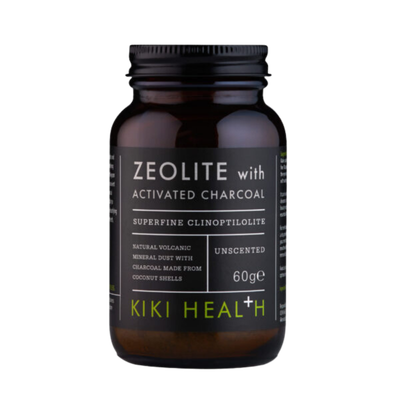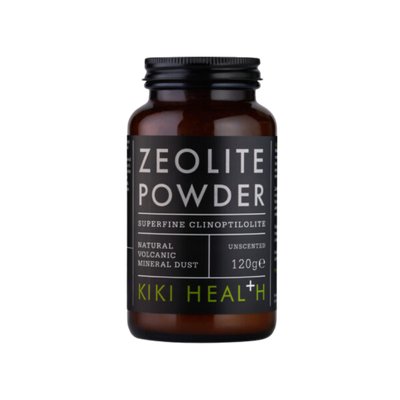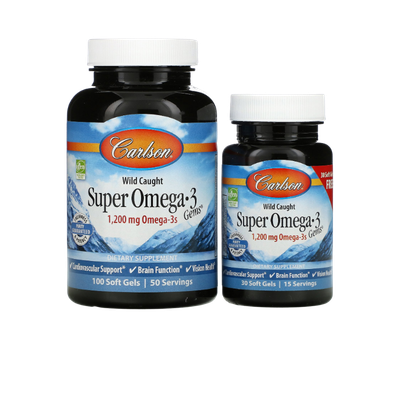Kaip Sustiprinti Širdį: Kardiologų Patikrinti Metodai Be Vaistų
Kasmet pasaulyje nuo širdies ir kraujagyslių ligų miršta apie 17 milijonų žmonių, ir šios ligos išlieka pagrindinė lietuvių mirties priežastis. Tačiau gera žinia ta, kad…

Do you know what benefits garlic has for your body? Research shows that garlic may have real health benefits, such as protection against colds and its ability to help lower blood pressure and bad cholesterol quantity.
Let food be your medicine and your medicine be your food.
Hippocrates
The most important thing is to know how you can use garlic correctly, so that it has the most benefits for you.

Garlic is a plant of the Allium (onion) family. It is closely related to onions, shallots and leeks.
Garlic grows in many parts of the world and is a popular ingredient due to its strong smell and delicious taste.
But throughout history, garlic has been a staple health and healing properties.1
Its use is well documented by many civilizations, including the Egyptians, Babylonians, Greeks, Romans, and Chinese.
Scientists now know that most of garlic's health benefits are caused by sulfur compounds that form when a clove of garlic is cut, crushed, or chewed.2
Other compounds that may affect health include diallyl disulfide and s-allyl cysteine.
Sulfur compounds from garlic enter the body from the digestive tract. They then travel throughout the body, exerting a strong biological effect.
Garlic is a plant in the onion family that is cultivated for its exceptional flavor and health benefits. It contains sulfur compounds that are thought to be responsible for some of its health benefits.
Garlic is incredibly nutritious.
One clove (3 grams) of raw garlic contains:
It also contains 4.5 calories, 0.2 g of protein and 1 gram of carbohydrates.
Garlic also contains a variety of other nutrients.
Garlic is low in calories and high in vitamin C, vitamin B6 and manganese. It also contains traces of various other nutrients.
Consumption of garlic is known to strengthen the function of the immune system.
A 12-week study found that a daily garlic supplement reduced the number of colds in 63% compared to placebo.3
The average duration of cold symptoms was also shortened with 70%, from 5 days in the placebo group to just 1.5 days in the garlic group.
Another study found that a high dose of aged garlic extract (2.56 grams per day) reduced the number of colds or flu 61%
Eating garlic can help prevent illnesses such as flu and colds. Also to reduce their health effects, but more detailed studies are needed before any conclusions can be drawn.
Cardiovascular disease, such as heart attack and stroke, causes more deaths than almost anything else.4
High blood pressure or hypertension is one of the most important factors that can cause these diseases.
Human studies have shown that garlic consumption has a significant effect on lowering blood pressure in people with high blood pressure.
In one study, 600-1,500 mg of garlic extract was as effective as the drug Atenolol.5
High doses of garlic seem to help those with high blood pressure (hypertension). In some cases, supplements can be as effective as conventional medications.
Why is it important to have healthy blood vessels - Benefits of healthy blood vessels.
Garlic can lower total and LDL (bad) cholesterol.
For those with high cholesterol, garlic supplementation appears to lower total and LDL cholesterol by about 10-15%.
Looking specifically at LDL (bad) and HDL (good) cholesterol, garlic appears to lower LDL but has no reliable effect on HDL cholesterol.
High triglycerides are another known risk factor for heart disease, but garlic does not seem to have a significant effect on triglycerides.
Many suffer from elevated levels of LDL. Detailed information on cholesterol can be found at – How to reduce the amount of "bad" cholesterol
Garlic supplements seem to lower total and LDL (bad) cholesterol, especially in those with high cholesterol. HDL (good) cholesterol and triglycerides do not appear to be affected.
Oxidative free radical damage contributes to the aging process.
It is in garlic antioxidants, which support the body's protective mechanisms against oxidative damage.
High doses of garlic supplements have been shown to increase levels of antioxidant enzymes. It also significantly reduces oxidative stress in people with high blood pressure.6
Cholesterol and blood pressure lowering effects and antioxidant properties may reduce the risk of common brain diseases such as Alzheimer's disease and dementia.
Garlic contains antioxidants that can help protect against cell damage and aging. It can reduce the risk of Alzheimer's disease and dementia.
The potential effect of garlic on longevity is largely unprovable in humans.
However, given the positive effects on important risk factors such as blood pressure, it makes sense to believe that consuming garlic may help you live longer.
An important factor is that it can fight infectious diseases, which are a common cause of death. This is especially true for the elderly or people with a dysfunctional immune system.7
Garlic has an effect on the causes of chronic diseases, so it makes sense that it can also help you live longer.
Garlic was one of the earliest "performance enhancing" substances.
It was traditionally used in ancient cultures to reduce fatigue and improve worker productivity.
In particular, it was given to Olympic athletes in ancient Greece.8
Studies in rodents have shown that consuming garlic helps with exercise, but very little research has been done in humans.9
In one small study, people with heart disease who took garlic oil for 6 weeks had a 12% reduction in peak heart rate and improved exercise capacity.
Garlic can improve physical performance in laboratory animals and people with heart disease. The benefits for people with heart disease have not yet been definitively confirmed.
In high doses, the sulfur compounds in garlic have been shown to protect against heavy metal toxicity.
A 4-week study of car battery factory workers (who were overexposed to lead) found that garlic reduced blood lead levels in 19%. It also reduced many clinical signs of toxicity, including headache and blood pressure. 10
One study found that garlic significantly reduced lead toxicity and associated symptoms.
No human studies have shown an effect of garlic on bone loss.
However, studies in rodents have shown that it can reduce bone loss by increasing estrogen levels in females.11
One study in women going through menopause found that a daily dose of dry garlic extract (equivalent to 2 grams of raw garlic) significantly reduced a marker of estrogen deficiency. 12 This suggests that it may have a positive effect on women's bone health.
Foods such as garlic and onions can also have a beneficial effect on osteoarthritis.
Garlic appears to have some bone health benefits by increasing estrogen levels in women, but more detailed research is needed.
Garlic is very easy to include in your diet. It complements dishes, especially soups and sauces. The strong flavor of garlic can also add spice to bland recipes.
Garlic can come in several different forms - whole cloves, finely chopped, mashed, powdered, and in supplements (such as garlic extract and garlic oil).
A common way to use garlic is to take a few cloves of fresh garlic with a garlic press, then mix it with extra virgin olive oil and a little salt. This is a very simple and nutritious salad dressing.

However, keep in mind that garlic has some disadvantages, such as a bad smell. There are also some people who are allergic to them.
If you have bleeding disorders or are taking blood thinners, talk to your doctor before increasing your garlic intake.
Garlic is tasty and useful. Garlic can be used in savory dishes, soups, sauces, etc.
Frequently asked questions about garlic and its benefits
What are the health benefits of garlic?
Garlic is known for its antibacterial, antiviral and antifungal properties. It can also help lower blood pressure, improve cholesterol levels, and strengthen the immune system.
Can garlic cause side effects?
Although garlic is safe for most people, some may experience indigestion, respiratory discomfort, headaches, or allergic reactions. If you notice any unusual symptom while consuming garlic, you should consult your doctor.
How much garlic should I eat per day?
There is no specific recommended amount of garlic as it depends on personal tolerance and health status. However, it is often recommended to consume 1-2 slices per day.
Garlic has been believed to have medicinal properties for thousands of years. Science is now beginning to confirm this.
If you are currently on blood thinners, be sure to check with your doctor before drastically increasing your garlic intake.
It is important to rememberthat everyone's health is individual and there is no common recipe for everyone!
So, if you want to know what nutrients your body might be lacking right now, health professionals recommend a guide – "Your Day".
Kasmet pasaulyje nuo širdies ir kraujagyslių ligų miršta apie 17 milijonų žmonių, ir šios ligos išlieka pagrindinė lietuvių mirties priežastis. Tačiau gera žinia ta, kad…

Artificial intelligence in medicine has made impressive progress – it has already successfully passed medical licensing exams and can handle internal medicine cases. Even more impressive is that special…
The human heart beats an average of more than 2.5 billion times during a lifetime. This amazing organ works tirelessly to maintain a vital pulse rhythm, the rate of which (pulse rate)…

KIKI Health Zeolitas - Ceolitas, milteliai, 60 g

Trace Minerals Mega Magnesium 400 mg. Liquid with minerals, 118 ml.

KIKI Health Zeolitas - Ceolitas su aktyvuota anglimi, milteliai 60 g.

KIKI Health Zeolitas - Ceolitas, milteliai, 120 g.

SUPER OMEGA-3 - norvegiški žuvų taukai su Omega-3, didelė koncentracija, 100+30 kapsulių
| Cookie | Duration | Description |
|---|---|---|
| cookielawinfo-checkbox-advertisement | 1 year | Šį slapuką nustato GDPR Cookie Consent papildinys. Slapukas naudojamas išsaugoti vartotojo sutikimą dėl slapukų kategorijoje „Analitiniai“. |
| cookielawinfo-checkbox-analytics | 11 mėnesių | Šį slapuką nustato GDPR Cookie Consent papildinys. Slapukas naudojamas išsaugoti vartotojo sutikimą dėl slapukų kategorijoje „Analitiniai“. |
| cookielawinfo-checkbox-functional | 11 mėnesių | Slapukas nustatomas pagal GDPR slapukų sutikimą, kad būtų įrašytas vartotojo sutikimas dėl slapukų kategorijoje „Funkciniai“. |
| cookielawinfo-checkbox-necessary | 11 mėnesių | Šį slapuką nustato GDPR Cookie Consent papildinys. Slapukai naudojami saugoti vartotojo sutikimą dėl slapukų kategorijoje „Būtini“. |
| cookielawinfo-checkbox-others | 11 mėnesių | Šį slapuką nustato GDPR Cookie Consent papildinys. Slapukai naudojami saugoti vartotojo sutikimą dėl slapukų kategorijoje „Kiti“. |
| cookielawinfo-checkbox-performance | 11 mėnesių | Šį slapuką nustato GDPR Cookie Consent papildinys. Slapukai naudojami saugoti vartotojo sutikimą dėl slapukų kategorijoje „Vykdymas“. |
| elementor | never | Šį slapuką naudoja svetainės „WordPress“ tema. Tai leidžia svetainės savininkui realiuoju laiku įdiegti arba keisti svetainės turinį. |
| viewed_cookie_policy | 11 mėnesių | Slapuką nustato GDPR Cookie Consent įskiepis ir jis naudojamas norint išsaugoti, ar vartotojas sutiko, kad būtų naudojami slapukai, ar ne. Jame nesaugomi jokie asmens duomenys. |
| Cookie | Duration | Description |
|---|---|---|
| _ga | 2 metai | _ga slapukas, įdiegtas Google Analytics, apskaičiuoja lankytojų, seansų ir kampanijos duomenis, taip pat seka svetainės naudojimą svetainės analizės ataskaitoje. Slapukas išsaugo informaciją anonimiškai ir priskiria atsitiktinai sugeneruotą skaičių unikaliems lankytojams atpažinti. |
| _ga_JWS80V051Z | 2 metai | Šį slapuką įdiegė Google Analytics. |
| omnisendSessionID | 30 minučių | Šį slapuką nustato teikėjas Omnisend. Šis slapukas naudojamas unikaliam seanso ID nustatyti. Slapukas statistiniais tikslais renka informaciją apie lankytojų elgesį svetainėje. |
| soundestID | sesijos metu | Šį slapuką nustato teikėjas Omnisend. Šis slapukas naudojamas norint nustatyti, ar lankytojas svetainėje yra naujas, ar lankytojas lankėsi anksčiau. |
| Cookie | Duration | Description |
|---|---|---|
| omnisendAnonymousID | 1 year | Šį slapuką nustato teikėjas Omnisend. Šis slapukas naudojamas išsaugoti vartotojo veiksmą svetainėje su unikaliu ID. Slapukas užšifruoja lankytojo duomenis, kad būtų apsaugoti naudotojo duomenys. |
| soundest-views | sesijos metu | Aprašymas negalimas. |
| woocommerce_recently_viewed | sesijos metu | Aprašymas nepasiekiamas. |
